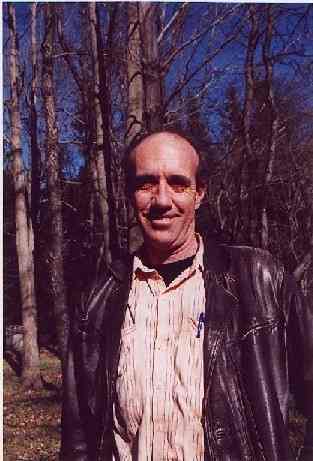THE CREEPY PLACE
"At the imagination of the spiritual ideal, many people are very afraid, as someone is afraid on the top of a high mountain when looking back on the immense space. It makes them fear, because they have always seen narrow horizons. The wide horizon has an effect which gives them a shock."
Hazrat Inayat Khan
"At the imagination of the spiritual ideal, many people are very afraid, as someone is afraid on the top of a high mountain when looking back on the immense space. It makes them fear, because they have always seen narrow horizons. The wide horizon has an effect which gives them a shock."
Hazrat Inayat Khan
If you are really paying attention to your own spiritual life surely you have noticed that the tendency is to become complacent and accept what you know is spiritual truth. It seems to be unavoidable. We also tend to shape our spiritual ideals in a way that is acceptable to us so that there is no confusion or difficulty. It doesn't seem to matter the depth of a person's realization, at some point we will decide that we know and cease to explore. And, as near as I can tell, the smarter a person is, the more likely they are to do something like this. I suppose because a smart person is convinced that their horizon is vast while a less smart person may realize that they still have things to learn. This is a totally non-scientific observation mostly based on my own journey.
As noted in the last article, I just recently figured out that it was okay to be smart. Having realized this I also had to admit that I always knew it but was afraid that others did not. Which is kind of reverse egotism I suppose. That said, I also realized a few other things. And one of them was exactly what Pir O Murshid stated above. I was sure that a vast horizon was mine but I was wrong. My horizon was/is severely limited to my idea of how the Universe sees me and how I relate to it. That was a very creepy feeling to realize I had severely limited myself. Now I have to think how to explain.
One of the things that is very important to understand about spiritual work is that it is totally okay not to know. In fact, the state of awe is one of those places that is fundamental to spiritual pursuits. That's easy to say, being there is something else entirely. I just saw a live theatre version of Mark Twain's "The Diaries of Adam and Eve." Clemens makes a very interesting point. In the story, Eve defies God and takes the apple. Clemens points out that Eve, in her total innocence would not really relate to 'Forbidden'. What could that mean to her? She had nothing to compare it to. So she takes the fruit of the Tree of Knowledge of Good and Evil and mankind is born. Without her innocent discovery of pain we never would have existed, according to Samuel Clemens that is. In the same way, in our sophisticated knowledge we are also innocent of true wisdom. As long as we limit our selves to what we are sure we know then we are separating ourselves from the true source of being and demanding that our peculiar version of reality be acknowledged. In other words, as Pir O Murshid says above, we are afraid. That's what I mean by creepy. Here we are all self satisfied and thinking we know what we are doing and whammo, some kind of revelation of transformation happens and we have to start all over again. Who wants that? Not me – yet I keep doing spiritual practices and doing the inner work. But I have to wonder over and over if I have slumped into complacency. It is very worrisome.
For people who are spiritual guides another aspect of this is recognizing that we often do not take our own advice. All too often I have been in conversation with someone, gave them really good advice that they found useful and then realized that the advice I gave was for me as well.
All of this has a singular meaning to me. You might find some other meaning but to me it says we are all struggling to find that place of interface between Unity and Separation. There is no doubt that we find ourselves in a constant state of separation. The evidence before us is testimony enough. Unity on the other hand is elusive and, as has been stated many times, it is all consuming once found. As Pir O Murshid states above, when I truly think of the spiritual ideal, I get scared. Letting go of separation is scary. On the other hand, when I can push through my fears, Unity seems so very beautiful.
This fear we all seem to experience is really a kind of poignant reminder that our beings and how we relate to the Universe and our immediate environment are always going to feel uncomfortable at some level. Apparently that is how it is supposed to be. This discomfort is our signal that we are doing something right.
So, challenge your complacency, demand the discomfort especially if you are responsible for others. Our journey is barely begun and the unveiling of humanity's potential still awaits us.
Love & Blessings, Musawwir

